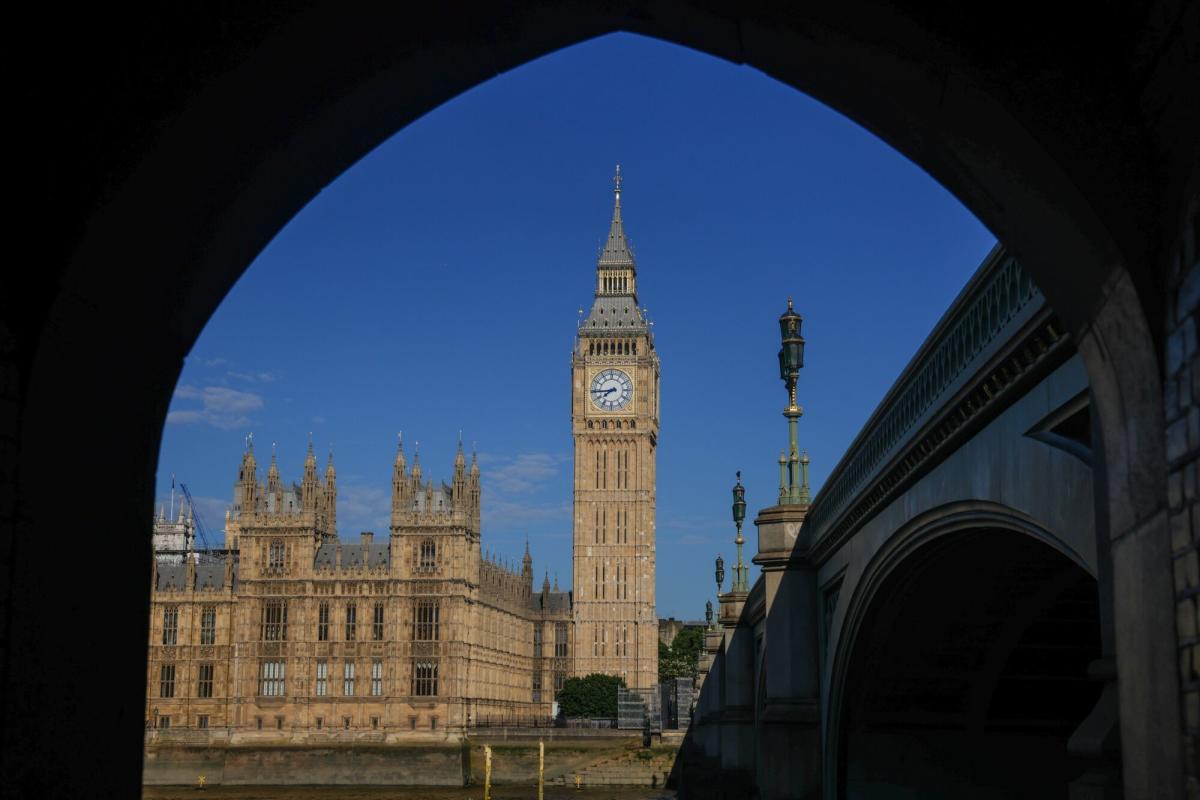(Bloomberg) — The next UK government will inherit the most challenging set of tax and spending problems in 70 years, according to a leading think tank.
Most Read from Bloomberg
The Institute for Fiscal Studies said a combination of high interest costs and feeble growth means the winner of the general election expected later this year will find it “more difficult to reduce debt as a fraction of national income than in any parliament since at least the 1950s.”
In a wide-ranging report marking the start of its work in the lead up to the election, the IFS sets out the scale of the challenges most likely facing Keir Starmer, whose opposition Labour Party has held a commanding lead over Prime Minister Rishi Sunak’s Conservatives for months.
‘Now more than ever, as a country, we face some big decisions and trade-offs over what we want the state to do and how we’re going to pay for it,” said Paul Johnson, director of the IFS.
Soaring debt and rising interest rates have added about £50 billion ($63.8 billion) a year to government borrowing costs, stripping public services of much-needed funding and driving the UK tax burden to a postwar high.
To stabilize the debt, which has soared from 50% of GDP to almost 100% of GDP in the last 15 years, the government will need to raise more tax than it spends on everything other than debt interest from now onwards, the IFS said. The last time the UK ran a so-called “primary surplus” was in 2002.
Both the Tories’ and Labour’s fiscal plans commit them to “substantial primary surpluses,” according to the IFS.
The government is under pressure to publish detailed spending plans beyond 2025 as it prepares for a March budget at which Chancellor Jeremy Hunt has said he wants to cut taxes. Earlier this week, Richard Hughes, chair of the budget watchdog, accused ministers of producing forecasts that are worse than a work of fiction due to the lack of detail.
Johnson said: “Those looking to form the next government should be honest about these trade-offs. If they are promising tax cuts, let’s hear where the spending cuts will fall. If they are going to raise, or even protect, spending, they should tell us where taxes will rise.”
“Parties might think that further increases in government debt are justified: in which case they should make the argument for why debt should be rising.”
Labour has pledged to borrow £28 billion a year for green investment by 2030 but Tory officials claim the plan would require tax rises or the debt burden will spiral upwards.
Johnson said there were no easy options. Taxes are at record levels and “most public services other than health” are facing another round of austerity in real-terms cuts.
Public investment is on track to fall by 0.8% of GDP by 2029, and even with Labour’s green spending it will be lower at the end of the next parliamentary-term than today. The annual state pension costs £153 billion and working-age benefits another £124 billion but “the generosity of many benefits has already been cut.”
One target could be health-related benefits. “Spending on disability benefits is rising incredibly fast as claimant numbers soar. This needs urgent attention, but previous efforts to rein in spending have struggled to achieve their objectives,” the IFS said.
Most Read from Bloomberg Businessweek
©2024 Bloomberg L.P.


